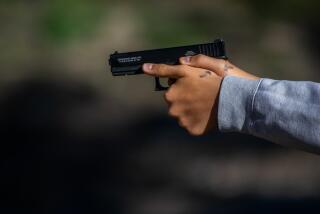A shoot-first mentality in Florida
There are good reasons why the killing of Trayvon Martin, a 17-year-old black youth who was shot to death by a neighborhood watch volunteer while walking through a gated community in Florida, has attracted national outrage. Martin, who weighed 140 pounds and was unarmed, was slain by a Latino man named George Zimmerman, who had been pursuing Martin through the neighborhood, outweighed him by more than 100 pounds and was armed with a 9-millimeter handgun. Yet Zimmerman claims that he acted in self-defense â and local police initially agreed, saying they didnât have enough evidence to charge Zimmerman with a crime.
Fortunately, the matter wonât end there. The public outcry in a case with heavy racial overtones has attracted the notice of the Justice Department, which is launching an investigation, and the county grand jury. Yet many similarly suspicious self-defense shootings have received less scrutiny in Florida, thanks to a 2005 law backed by the National Rifle Assn. that gives too much of the benefit of the doubt in questionable shootings to the shooter rather than the victim.
The so-called stand your ground law asserts that a person has no duty to retreat when facing an attacker and has a right to use deadly force if he âreasonablyâ believes he or others are threatened with death or great bodily harm. It also grants âtrue immunityâ from civil and criminal charges. This means a judge can use this law to dismiss a case before it goes to trial, and also that Florida prosecutors are less likely to pursue homicide cases against people who claim they acted in self-defense. The St. PetersburgTimes performed a search of Florida newspapers and turned up 93 cases in which the law could have been applied from 2005 to 2010, and found that 57 of them never went to trial.
We donât know what happened between Martin and Zimmerman and are in no position to judge. But whenever an armed person shoots an unarmed one, the case should be subject to enormous scrutiny, of the kind best provided in a formal trial setting. Laws that discourage this might serve the interest of gun owners, but not the interest of justice. Moreover, we think the shooter in a justifiable homicide should have to demonstrate that he made some attempt to defuse the situation before opening fire, unless he was in imminent danger of attack from another armed person. Itâs easy to make a case for self-defense when you kill your only witness, and laws like Floridaâs encourage a dangerous shoot-first mentality.
More to Read
Sign up for Essential California
The most important California stories and recommendations in your inbox every morning.
You may occasionally receive promotional content from the Los Angeles Times.










